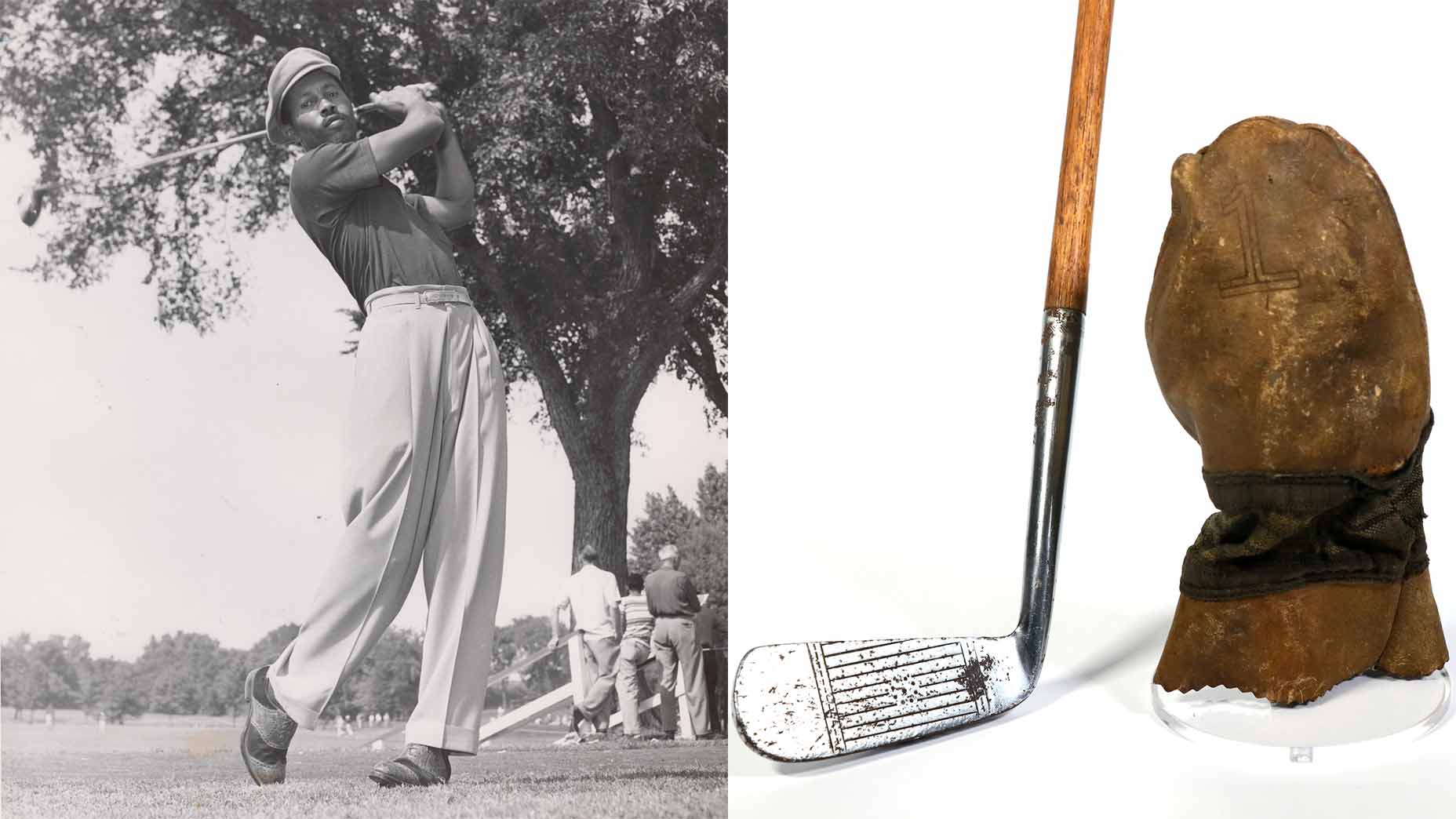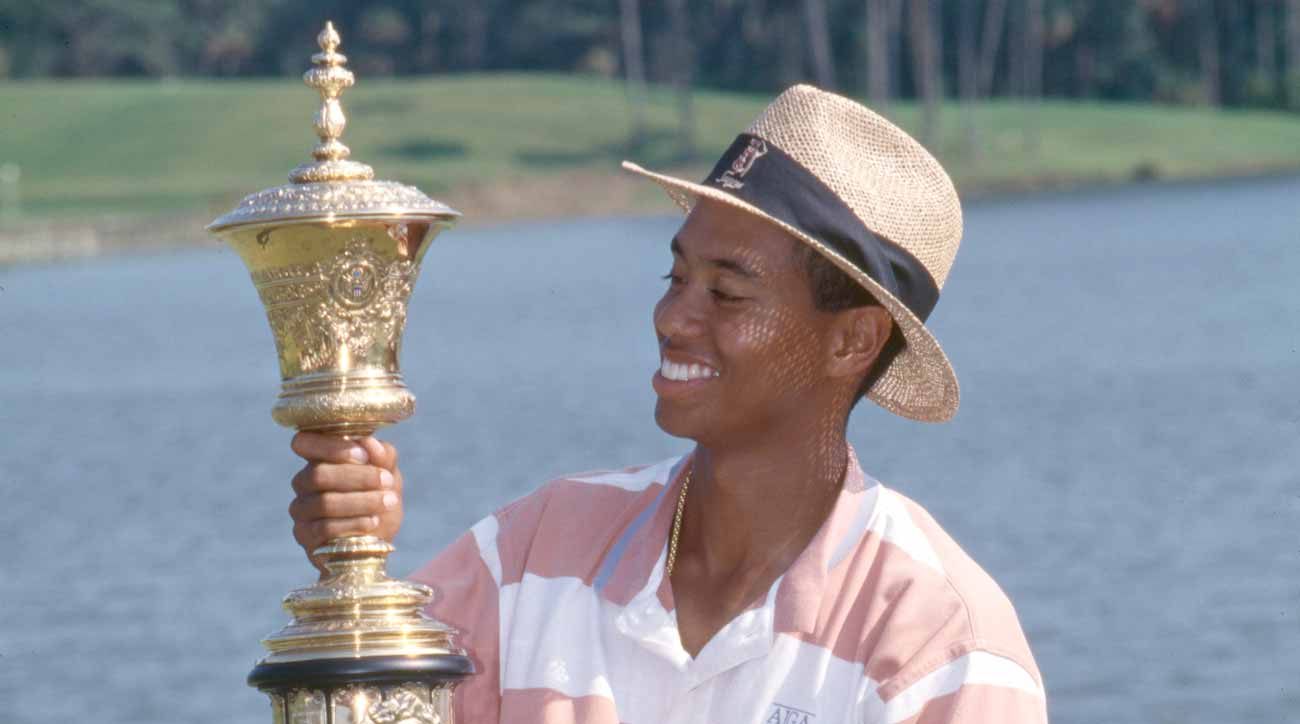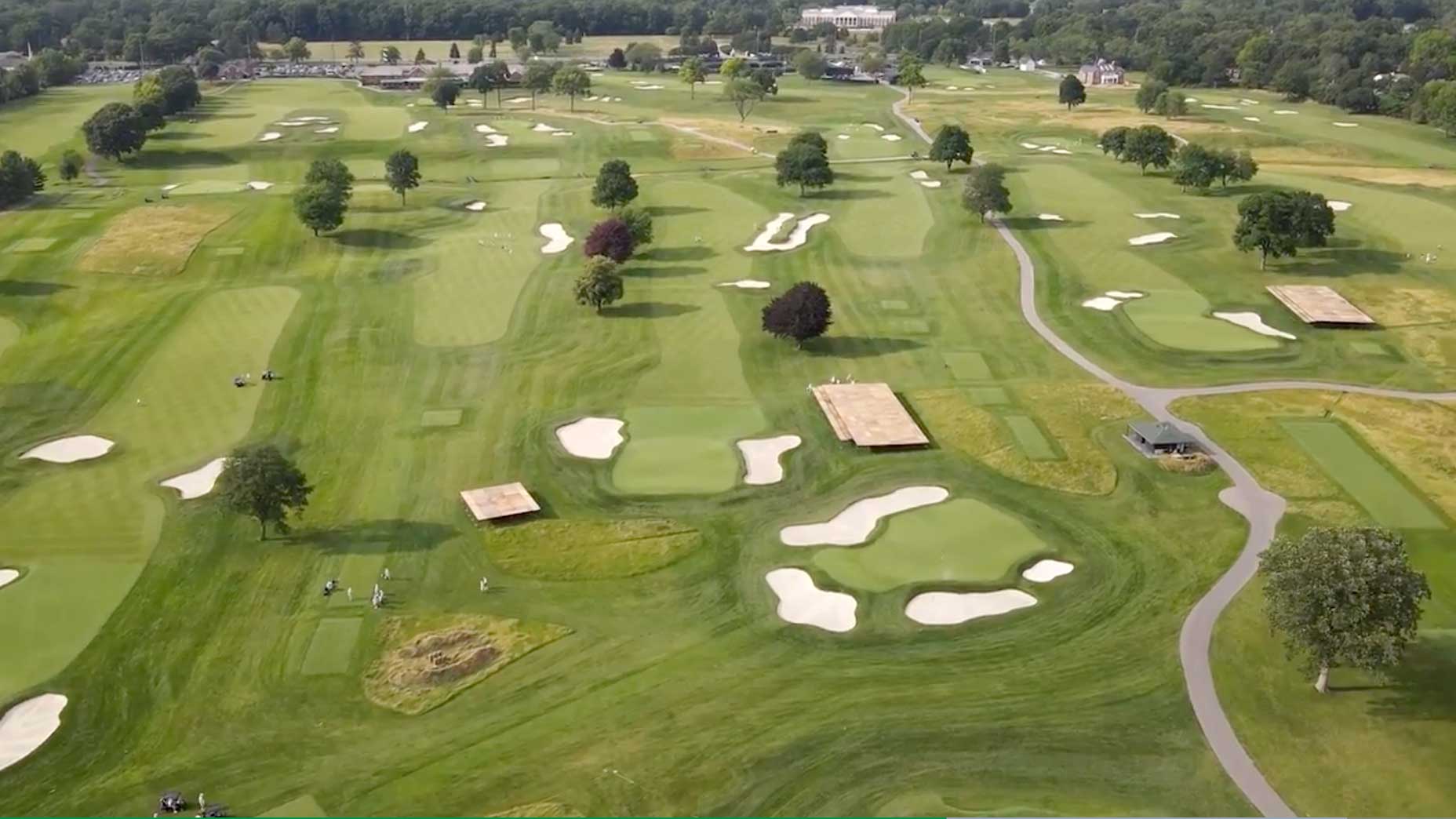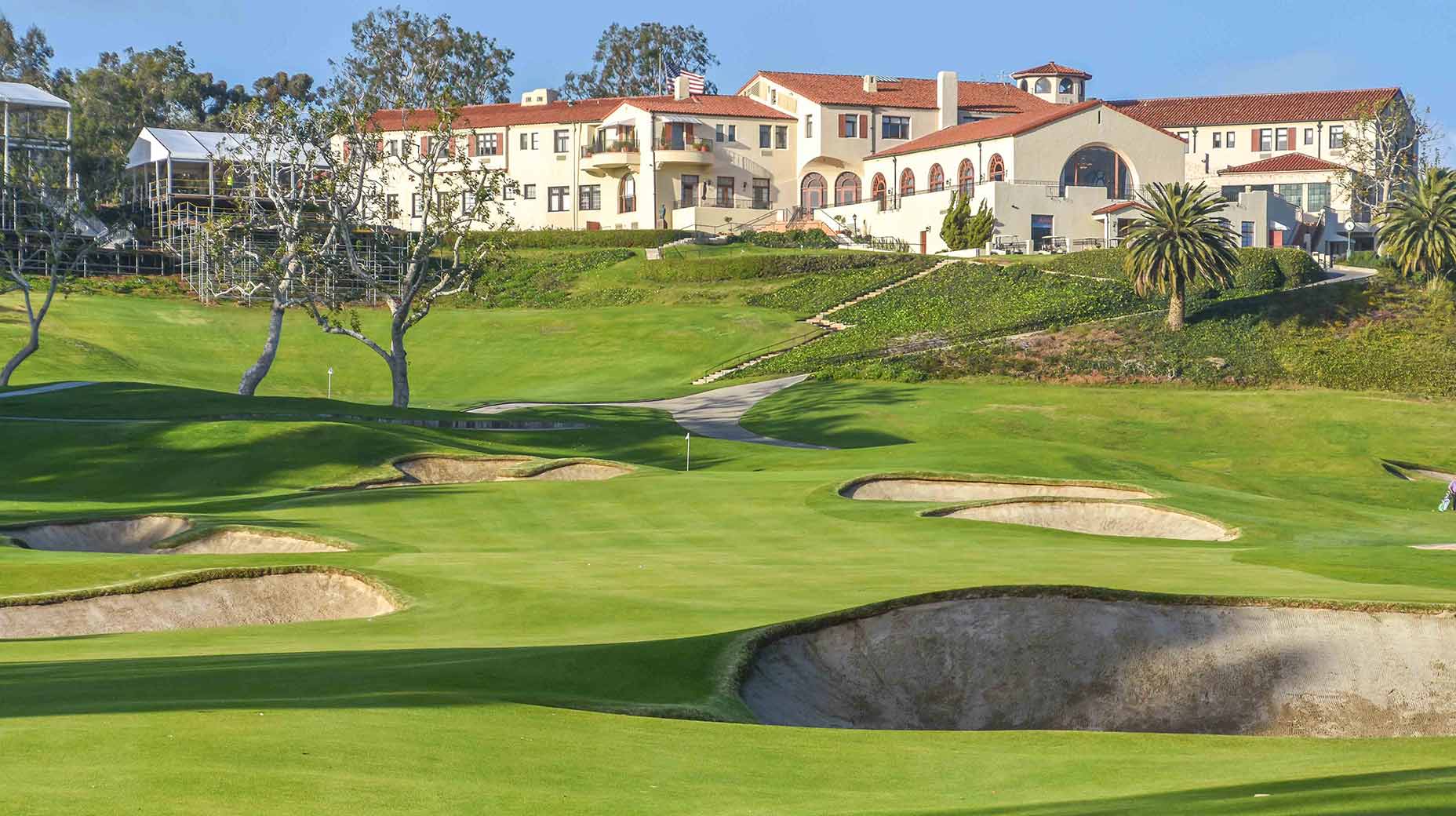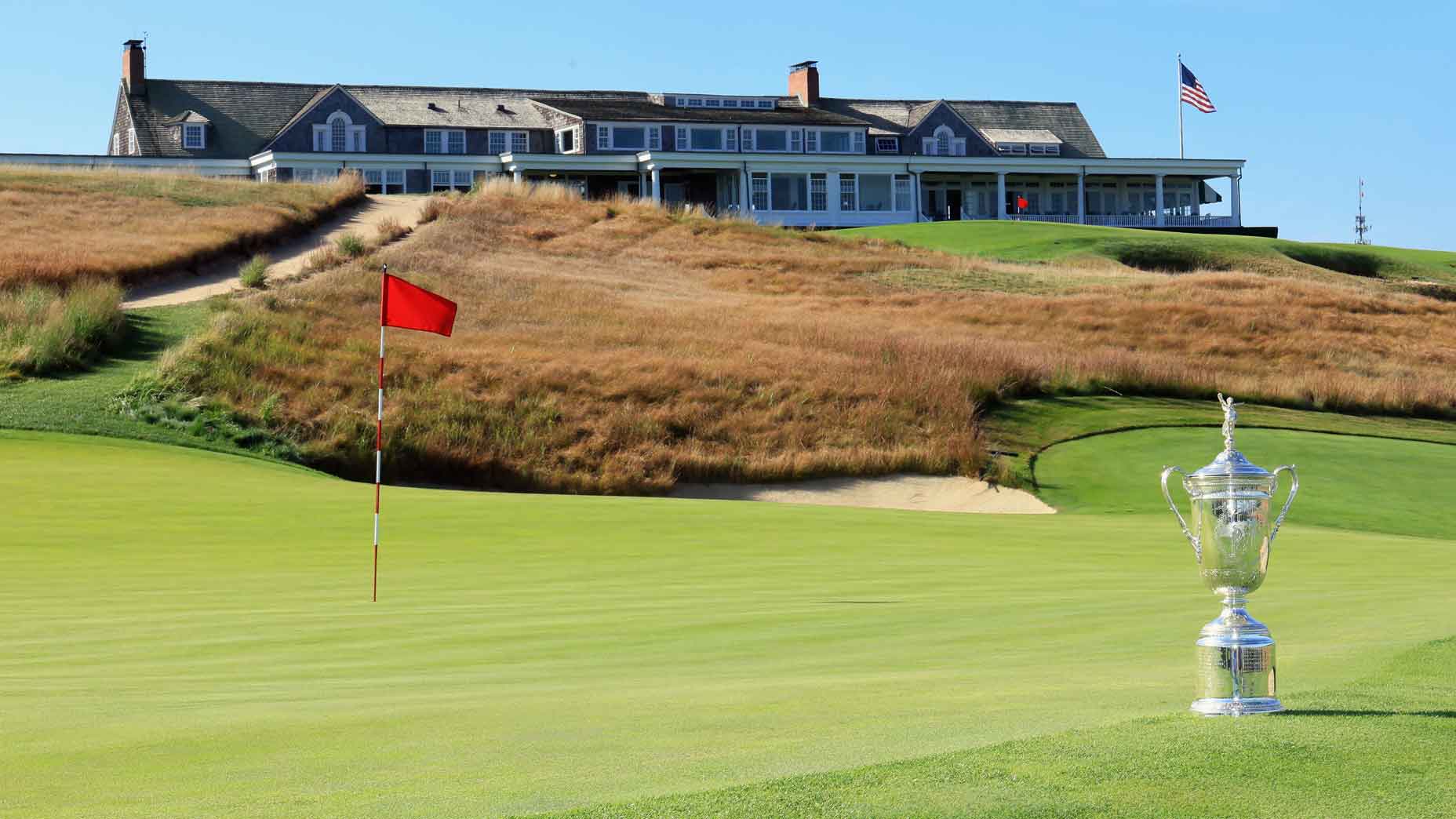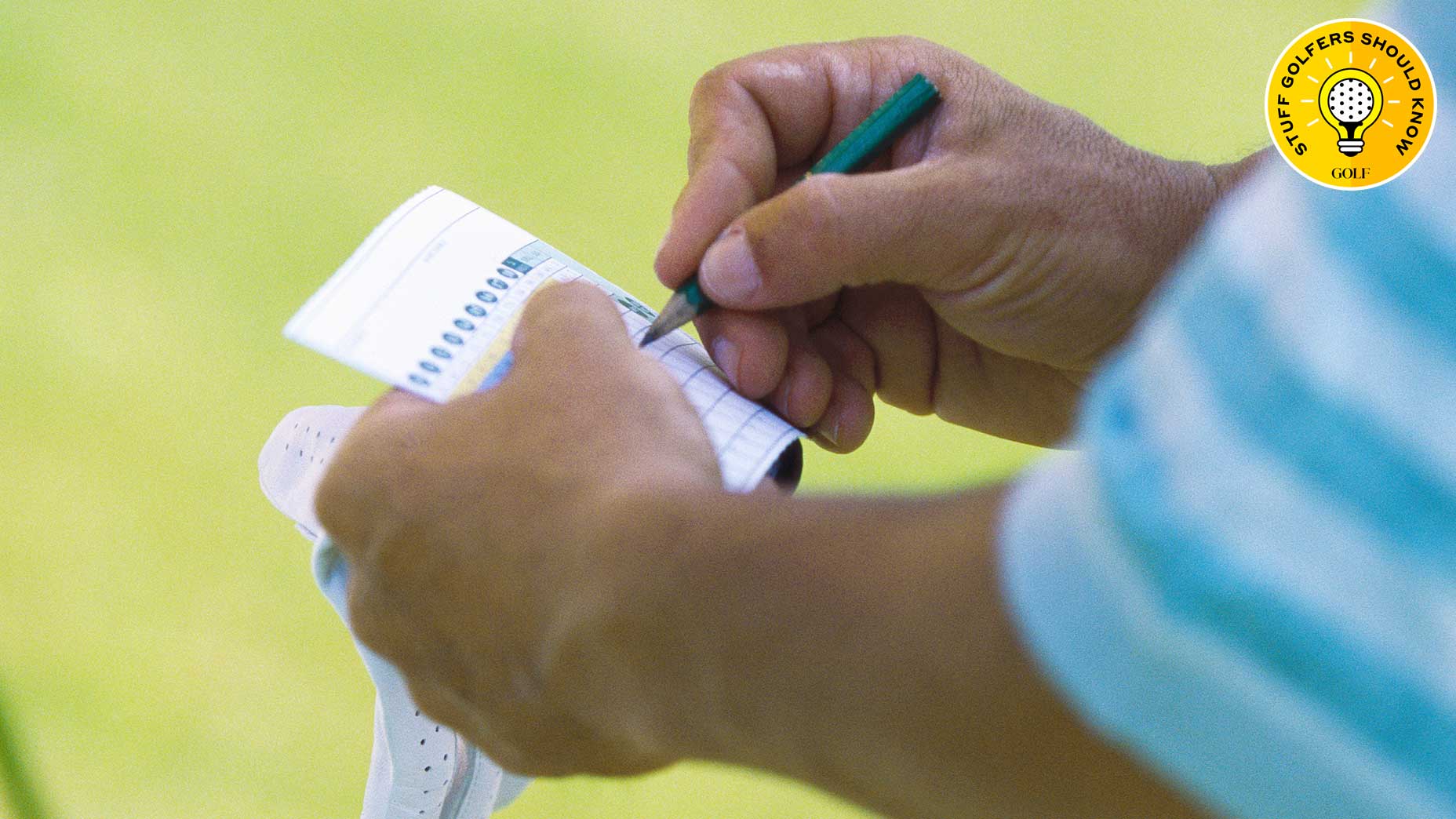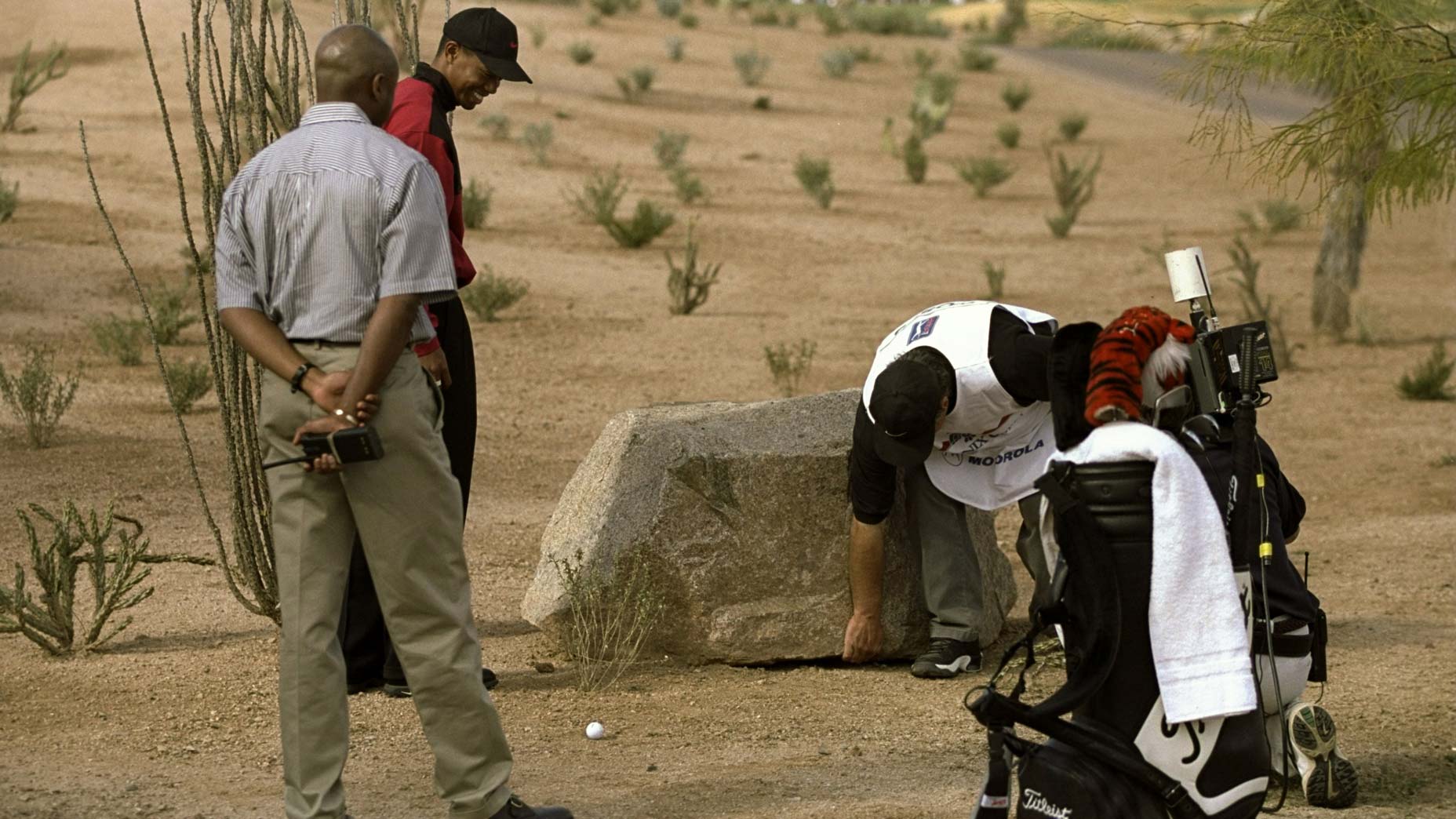This content was first published in Golf Journal, a quarterly print publication exclusively for USGA Members. To be among the first to receive Golf Journal and to learn how you can ensure a strong future for the game, become a USGA Member today.
At the 2021 African American Golf Expo in Atlanta, Peggy and Tiffany White were looking at USGA artifacts when they came across something neither had ever seen: a tournament program photograph of Ted Rhodes, Peggy’s father and Tiffany’s grandfather, who was also one of the nation’s top Black golfers in the late 1940s.
Rhodes started in golf as a caddie in his native Nashville, Tenn., before developing into a topnotch player, largely by practicing in local parks. Due to the racial segregation policies of the PGA of America and many host clubs, however, he had few opportunities to play against the era’s top pros.
Rhodes did qualify for the 1948 U.S. Open at The Riviera Country Club in Los Angeles, becoming the first African American to compete in the championship since John Shippen in 1913. His first-round 70 put him three strokes behind the leader and eventual champion, Ben Hogan; though Rhodes ultimately finished T51, his performance demonstrated on a global stage the undeniable talent of Black golfers.
As a result of the African American Golf Expo, USGA Golf Museum and Library staffers began a dialogue with Peggy and Tiffany White. These conversations led to a plan to conserve and share with the world the family’s pride and joy — the only equipment items known to have been used by Rhodes, consisting of four clubs, two headcovers and a golf bag from the 1940s.
These items made their public debut at the 2022 U.S. Open History Experience for thousands of fans to discover and appreciate. In 2023, thanks to the Ted Rhodes Foundation, the artifacts were donated to the USGA Golf Museum and Library, where this trailblazer’s wooden-shafted putter is now on permanent display.
Victoria Nenno is the senior historian of the USGA.
